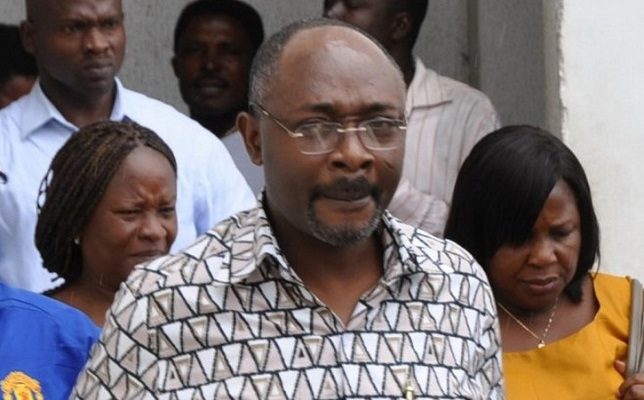Woyome loses case against Ghana at African court
Businessman, Alfred Woyome has lost his case against the government of Ghana at the African court.
The court has been adjudicating over the human rights aspect of the judgment debt payment impasse between him and the Ghana government.
Starrfm.com.gh sources at the court say the panel is of the view that Mr. Woyome’s rights have not been violated in the course of the trial.
He had earlier vowed that he would win the case against Ghana.
“This case has just started so one should not begin jubilating that my properties will be sold. I’ll fight this case until its logical conclusion. I could look for a loan to pay the remainder of the judgment debt awarded me back to the state. But as a law-abiding citizen, I’ve been waiting to hear the ruling of the African Human Rights Court on my case before acting.
“The ruling will be done tomorrow. If the African Court says I should pay the state, I’ll sit down with the state and see the way forward. If the court rules in my favour, we’ll make sure that the ruling is applied in Ghana,” Mr. Woyome said.
On Thursday, a single Justice of the Supreme Court, Justice Alfred Benin, had ordered that several properties identified as belonging to the embattled businessman be sold to off set some GHS 51 Million judgement debt paid illegally to him by the State.
The properties are; two executive buildings located at Trassaco in Accra, the office complex of Anator Holdings -a company owned by Mr. Woyome-, two residential buildings at Caprice and Abelemkpe – both suburbs in Accra-, as well as a mining quarry owned by the judgement debtor in the Eastern Region of Ghana.
The state identified the properties owned by Mr. Woyome which are estimated at GHS 20 million that it believes could prove vital in retrieving the GHS 51.2 million judgement debt he received from the state unlawfully.
The now defunct UT Bank has claimed some of the properties identified by the state as theirs. It was the claim of lawyers of the defunct UT Bank that Woyome used the said properties as collateral for loans at the bank which he failed to pay back. Ownership of the properties, according to UT Bank, based on the failure to pay back the loans, transferred to the bank automatically.
The state, represented by the Deputy Attorney General, Godfred Yeboah Dame, argued that there is no evidence to show that the said properties were used as collateral by Woyome to secure loans from UT Bank. The properties, the state maintained, are owned by Mr. Woyome and therefore prayed the court to declare same as true to pave way for the state to sell them.
The Apex Court was expected to deliver its judgment on the 13th of May, 2019. However, after meeting with all the parties involved in the case in chambers, enquiries by journalists revealed that judgement on the UT Bank side of the case according to the judge is ready but that of the Anator Holdings is not ready. The Presiding Judge therefore instructed that the parties should return to court today the 27th of June, 2019 for a joint decision.
In his judgement, Justice Benin said he has concluded that the claim by UT Bank that Mr. Woyome used the two buildings at Trasacco as collateral for a loan is false as they did not provide any credible evidence to substantiate their claim. On the issue of the office complex of Anator Holdings, the Court held that all evidence point to the fact that they are indeed owned by Mr Woyome and not anyone else. Subsequently, all the properties identified by the State are to be sold in satisfaction of the judgement debt owed the State.



